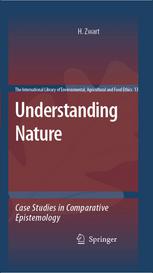

Most ebook files are in PDF format, so you can easily read them using various software such as Foxit Reader or directly on the Google Chrome browser.
Some ebook files are released by publishers in other formats such as .awz, .mobi, .epub, .fb2, etc. You may need to install specific software to read these formats on mobile/PC, such as Calibre.
Please read the tutorial at this link: https://ebookbell.com/faq
We offer FREE conversion to the popular formats you request; however, this may take some time. Therefore, right after payment, please email us, and we will try to provide the service as quickly as possible.
For some exceptional file formats or broken links (if any), please refrain from opening any disputes. Instead, email us first, and we will try to assist within a maximum of 6 hours.
EbookBell Team

4.7
106 reviewsThis summons clearly resonates with the “archetypical image” associated with water as a basic element, discussed in Chapter 2, water as the element of freedom, of mobility, of widening one’s horizon. Although Nietzsche himself refrained from doing what he summoned others to do, scientists like Darwin and novelists like Melville actually went to sea. Darwin, although regarded by Nietzsche as an arid 6 and mediocre mind, exposed himself to the experience of a long-term trans-oceanic voyage in the course of which he did discover new worlds, new justifications, new moral watchwords even (“struggle for life”) that were to have a tremendous impact on science, philosophy and even culture at large. Other perspectives are present in Moby-Dick as well, such as the theologian’s one, depicting the whale as the biblical Leviathan and the ocean as that part of the world where the great flood never abated. Indeed, the interpretation of marine p- nomena in Biblical terms is more or less omnipresent in the novel and also resounds in the views and language of the philosophical sailor and story-teller Ishmael. But what about the novelist’s whale? Actually, there is not one novelist’s whale. Ishmael-the-narrator unmistakably sides with the whaler’s point of view, but Melville-the-author is interested in, and tries to do justice to, a plurality of voices.